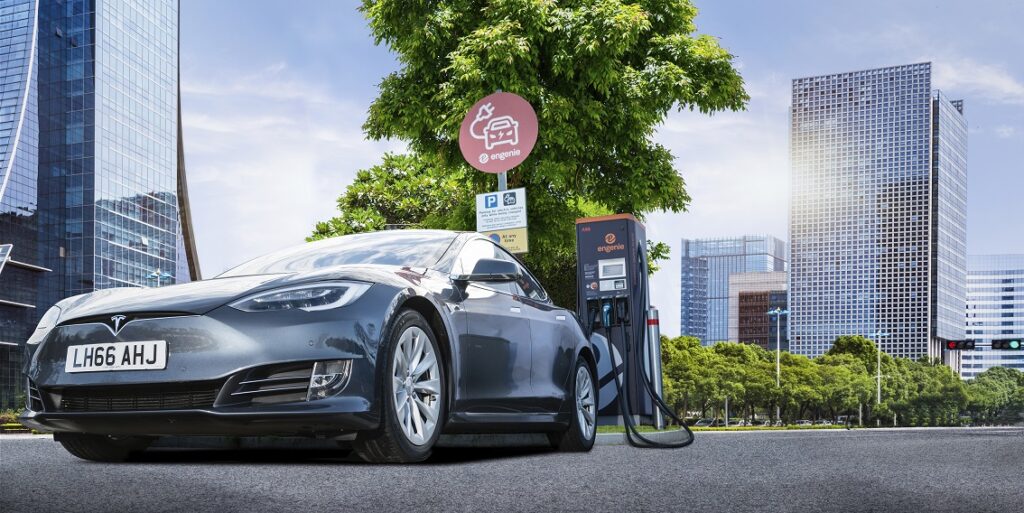Engenie is aiming to install 1,500 electric vehicle chargers nationwide able to charge up to 150kW having secured investment from international banking group Investec last month.
The company had installed seven rapid chargers prior to the funding and is now building the team needed to deliver its deployment programme which is now underway.
While accommodating the current 50kW charge rate of existing EVs Jeremy Littman, founder and director of Engenie, told Clean Energy News that the company’s chargers would be fit for the future needs of the UK’s EV market.
“Engenie’s future-proofed ultra-rapid chargers will initially charge any capable EV up to 150kW on DC but will still be able to charge 50kW cars. As the EV market progresses towards 350kW, we will add further power modules at selected sites to cater for the shorter dwell times, such as at petrol stations.
“Our existing rapid chargers charge up to 50kW on DC and 43kW on AC and are ideal for the 30 minute typical dwell times at for example supermarket car parks or on-street locations where space is constrained. We plan to cater for all drivers at our locations,” he said.
Engenie will seek to target commercial property owners and local authorities to develop its network, which will strategically locate chargers throughout major centres and trunk routes. Locations will include retail parks, supermarkets, hotels, restaurants, petrol stations, commercial developments and on-street charging.
The rapid and ultra-rapid chargers are offered free for landlords, with Engenie earning its revenue via a “straightforward” charging rate of £0.36/kWh.
Despite this figure being one of the higher charging rates known to the market – Shell’s plans include a £0.49/kWh charge at its stations, Ecotricity settled on £0.30/kWh for its Electric Highway in December, Pod Point is trialling a £0.24/kWh charge at selected Tesco stores while Sainsbury’s is offering as low as £0.10/kWh – the company says it will cater for short or long charges on a ‘pay as you use’ basis.
It added the chargers would attract additional customers to these locations, and landlords will earn an income from each charge point. Engenie meanwhile takes care of all programme management, maintenance, customer billing and service systems and insurance.
Littman added: “Our in-house team has extensive expertise in real estate and retail, and we’ll also be working closely with fleet managers to facilitate a transition to electric vehicles, without the need for costly investment.
These destination points have been identified by many of the country’s charging network operators and suppliers as key areas of activity going forward, particularly to supplement the presence of home and workplace charging.
For more on the current state of EV charging in the UK, Clean Energy News has published its latest long read article Driving Change – How the UK is ready and waiting for the electric future of transport.






